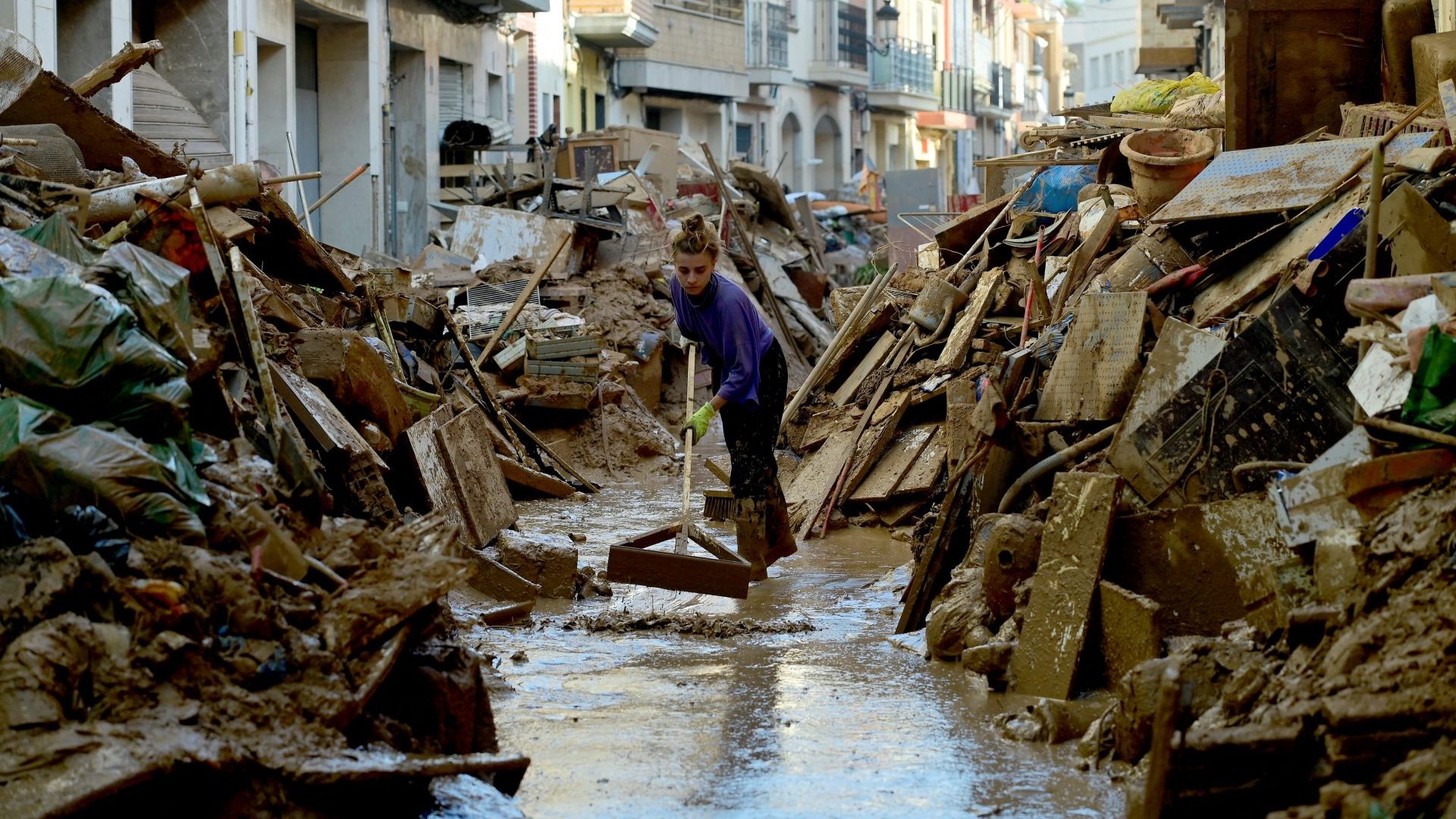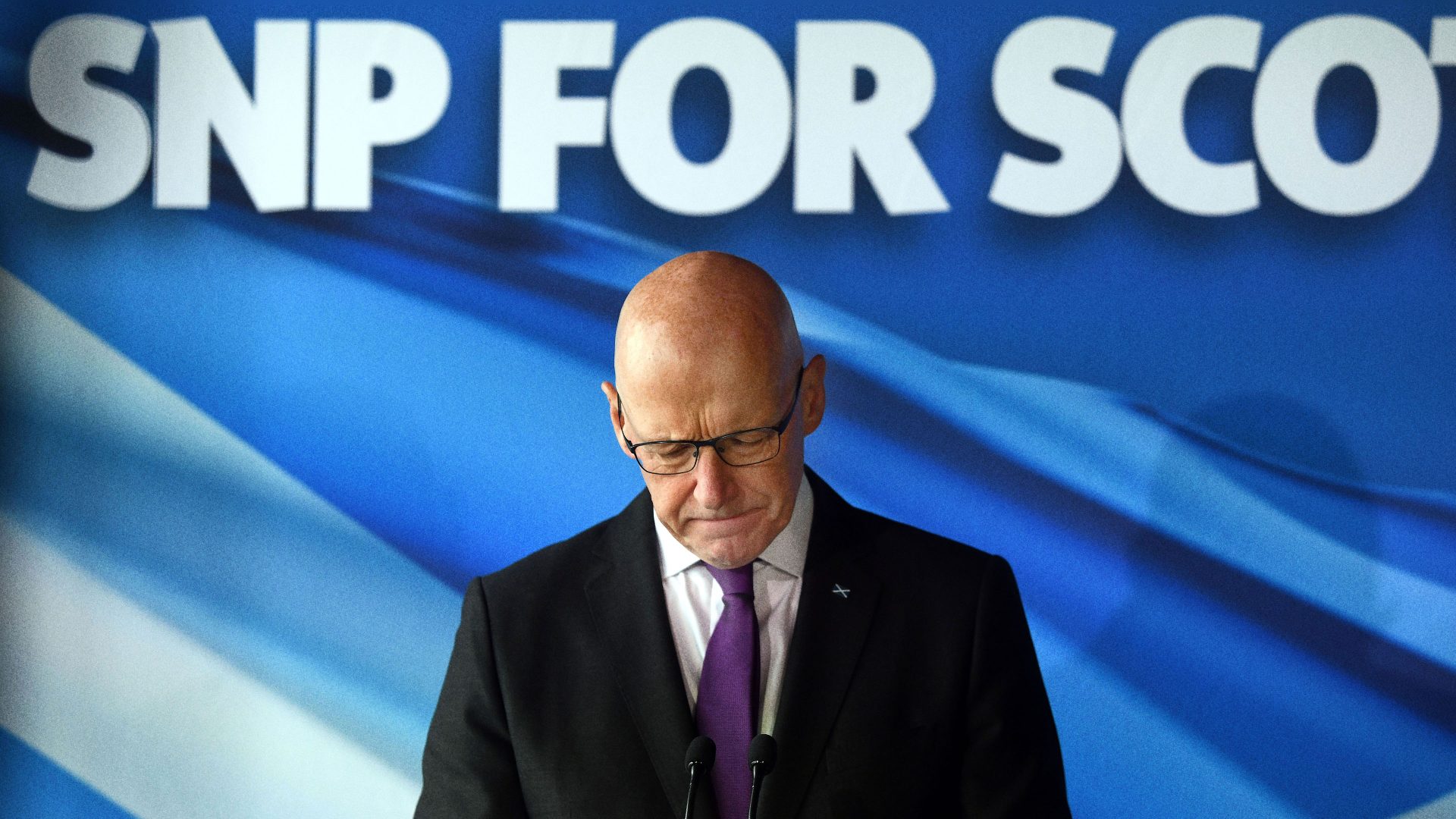Weeks after Valencia’s deadly floods, the affected towns are still caked in mud and sitting in stagnant water. Clean-up and rescue efforts continue, but these have been hampered by the political blame game raging between Madrid and Valencia’s regional government.
The shock has now transformed into anger. The Spanish press are now asking pointed questions about the lacklustre warning system and slow crisis response, as well as the impotent post-flood coordination and painful political blunders. This was made most clear by the remarkable recent images in Paiporta, a town where 62 people died. When the Spanish royals visited the town, people surrounded them, heckled and threw mud at them.
Spain’s Socialist prime minister, Pedro Sánchez, was also there that day, and was forced to flee as his car windows were smashed. Carlos Mazón, president of Valencia’s local government, the Generalitat, was also there. Face splattered with mud, Mazón seemed genuinely shaken.
There can be no doubt about who Valencians blame for this tragedy – 100,000 people marched in the streets demanding Mazón’s resignation. A crowd of people stretched from the city’s Estació del Nord all the way through town hall square and up to the 15th-century Palau de la Generalitat, the regional government’s headquarters.
Many people marched in their mud-stained boots and overalls after a day of clean-up work, with placards fixed to their brushes and shovels.
There were deafening chants of “Mazón, resign!” and “murderer, murderer!” Some signs called for him to be imprisoned, others simply listed the names of the dead. There were shrieks and whistles, real anger in the air. A cardboard guillotine floated through the crowd. Placards with bloody handprints were passed around. One local, Cruz, said: “I’m outraged, because we’ve never had such an incompetent government that has caused so many deaths.” Asked if he thought Madrid bore any responsibility, he shook his head. “Not at all, this is the responsibility of the Generalitat.” Like almost everyone here, he wants Mazón to resign, along with his whole team.
The charge sheet against Mazón and his centre right Partido Popular government seems politically unsurvivable. Everywhere you looked, there were banners referring to his now infamous long lunch. As torrential rain fell and the flooding began, Mazón was at lunch with a journalist, and was uncontactable.
The civil protection SMS alert was sent after 8pm, around 12 hours after the Spanish met office issued a “red level” warning and hours after civil servants were sent home from work. Mazón even said in the afternoon that the storm would pass by 6pm (tweets now deleted) and arrived two hours late to the crisis meeting.
He missed several calls from Spain’s environment minister offering help – blaming a poor phone signal – and he tried to deflect responsibility on to Spain’s weather and hydrological agencies.
It gets worse. On entering office last summer, Mazón’s government (in coalition with the far right Vox party) cut the region’s emergency response team to prioritise funds for bullfighting. Salomé Pradas, Valencia’s interior minister, didn’t even know that the SMS alert system existed. Mazón also rejected offers of help from other regions, and hesitated on bringing in army rescue teams or passing the problem up to Madrid.
In Spain’s autonomous community system, the central government can only take over when the regions request it, something Mazón refused to do out of haplessness, political game playing, or some combination of the two.
There was the odd anti-Sánchez banner at the protest (“Sánchez and Mazón, the same shit”) calling for his resignation alongside the regional head. Yet despite what the Spanish right says, it’s not what most Valencians think.
At the Palau de la Generalitat, the streets are narrow. During the demonstration it was impossible to move. The sound was thunderous. The front door was covered in flowers and filthy work gear, doused in red paint, bloody and muddy handprints, graffiti saying: “Mazón, murderer”. Later on there were violent skirmishes between protesters and police.
Beatriz, from Torrent, one of the affected towns, said that “in Spain, the regions have many powers ceded to them… Clearly the responsibility lies with the Valencian government.”
Conor Patrick Faulkner is a freelance writer based in Valencia



